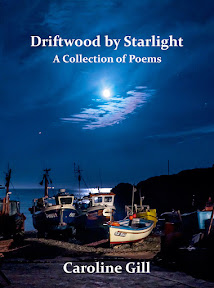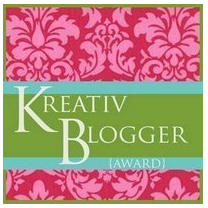Some days ago I invited those who read my blog or Facebook page to join me in penning a sentence (or so), defining the difference between nature poetry and ecopoetry, in not more than 21 words. What follows are the responses I received from friends on both sides of the Atlantic, and a bit of commentary from me. I hope something may strike a chord!
 |
| (Re)connection ... |
Nature poetry extols the beauty and splendor of the natural world without sending a warning that it is being ruinously exploited.
Belva Rae Staples, USA
I teach a creative writing class devoted to environmental writing versus nature writing! I'll try and think of a neat 21-word definition ... I think in general that you need to be careful with poetry that is trying to deliver a message: too much focus on the message and it becomes a political rant rather than poetry. Having said that, I read so much poetry these days that seems to not really have anything to say that sometimes it's quite refreshing to find an overtly political poem.
Juliet Wilson aka Crafty Green Poet, Scotland, UK
What is Nature?
I liked the six year old’s simple answer to that huge question:
“Grass and insects.”
Beyond, it gets too romantic.
Kay D. Weeks, USA
Poetry is thoughts in words, not necessarily political, making a point, or angry, but always personal, passionate and always emotionally touching.
Rose Kelland, England, UK
Nature poetry is not didactic per se.
P. Mc Daid (via Facebook)
I think nature poetry is where one takes time to spend in their natural surroundings recording their sightings, etc... and eco poetry asks one to look at nature from a green perspective and identify a way of change, possibly.
Ecopoetry pushes us beyond our normal landscapes to a world in which our relationship with the universe affords possibilities for change.
Caroline Gill, England, UK
***
My thanks to all who sent in their thoughts ... and also to those who read the post and began to think, without formulating a specific statement. Belva's answer takes me right back to Wordsworth and the way in which he claimed that his times of engagement with the natural world were later 'recollected' at an emotional level 'in tranquillity'. There are those these days who find or make little time to 'stand and stare' (or as Naquillity expresses it, to 'take time'), preferring instead to write 'in the raw' and to depict the natural world 'red in tooth and claw'. Interestingly. this second expression, employed by Tennyson in his poem, In Memoriam A. H. H., 1850, originally referred to the nature of human beings, despite the fact that the phrase 'tooth and claw' was in circulation as early as 1837 as a description of wild (animal) nature.
Those who read my blog posts will know that I struggle with politics, but since this word appears in the statements from both Juliet and Rose, I feel I must make some reference to it! I think we are all pretty much agreed that the poems that work best (in our opinion) as poems tend to be those that allow the reader to feel that he or she is left with the lingering thought along the lines of 'yes ... and if only I had been able to express that nuance/position/thought/point of view myself'. There may also be poems that cause us to shout a resounding 'No!', but we may actually admire the quality of the work, even if we find ourselves in definite disagreement with the sentiment.
Shelley famously hailed his fellow poets as the 'unacknowledged legislators of the world', but I fear that this may be at best a sweeping statement in our current climate. Speaking personally, the closest I have (probably) come to writing political poems has been when I have touched upon subjects that stir strong negative emotions in me, such as those triggered (sorry!) by the atrocities of war or by unhelpful portrayals of disability. The former example brings me back, of course, to Wilfred Owen and his much cited dictum, 'all a poet can do today is warn. That is why the true poet must be truthful.'
Speaking of 'truth', I am taken back to a favourite childhood collection that included two very different poems by William Blake, namely 'The Lamb' and 'The Tyger'. And yet, of course, Blake's poems of Innocence and Experience were probably two sides of the same coin. This brings me to the delightful and pertinent response from Kay.
It is my personal opinion that Nature poems have - and always will have - their place alongside other types of poetry. However, I feel Kay is right to hint at a line somewhere between the bounds of sentimentality or romance and that fresh vision of the world that we can sometimes see or appreciate in work that exudes a fresh childlike (but never childish) vision of the world around us. I'm sure, if we are honest, most of us can name a couple of favourite 'nature' poems that have little to do with saving the whale (important as that may be!) or picking up litter. P. Mc Daid feels that poems of this type are 'not didactic, per se', which is an interesting observation, and not one the ancient Greeks would have taken to readily, as for them the poet (or playwright) was 'teacher'. By the same token I would be astonished if any of our favourite choices were pastorals in which shepherdesses skip lightly through an Arcadian landscape.
But the story doesn't end there. Poetry - or some poetry - has been a vehicle for change for a very long time. Only last month I read a lively section from the Frog Chorus by Aristophanes at our local Poetry Cafe. You can read a summary of the plot here.
So, zooming forward in time, where do we go from here? Perhaps we need to read more broadly. I suggested that contributors to this topic might like to share the title of a favourite nature poetry/ecopoetry volume, and a few suggestions have been made by Juliet, so thank you for these.
Juliet recommends Earth Shattering, edited by Neil Astley. 'A wonderful anthology of eco-poetry and nature poetry'. Juliet also recommends the following poets (among others): -
A short selection of my own recommendations - in no particular order - would include:
- Creatures of the Intertidal Zone (Cinnamon Press) by Susan Richardson
- Where the Air is Rarefied (Cinnamon Press) by Susan Richardson, with prints by visual artist, Pat Gregory
- Unthinkable Skies (Calderdale Press) by Juliet Wilson
- The Annotated Collected Poems of Edward Thomas (Bloodaxe), edited by Edna Longley
- The Tree House by Kathleen Jamie (Picador)
- The Thunder Mutters, 101 Poems for the Planet (Faber), edited by Alice Oswald
- Animated Nature: Selected Poems 1989-2009 (Coypu Press) Richard Bonfield. Sales from this book support the Born Free Foundation
- Heno, wrth Gysgu | Tonight, While Sleeping: Poetry on Climate Change (Royne Tree Press), edited by Emily Hinshelwood
I have purposely not divided the list above into 'nature poetry' and 'ecopoetry' because the boundaries are blurred in some cases, and it goes without saying that when Edward Thomas was writing, the term ecopoetry had not been coined!
Many would say that the concept of ecopoetry really began to take shape in the years leading up to the turn of the Millennium, initially in the work of UK writer, Jonathan Bates, and in the writing of the American, Gary Snyder.
And finally, some weblinks that seem helpful to me ...
- Octopus Magazine, 'The Language Habitat: an Ecopoetry Manifesto' by James Engelhardt, who begins by stating that 'ecopoetry is connection'.
- Verse Wisconsin Online, 'Ecopoetry', a highly thought-provoking essay and argument by Laura-Gray Street and Ann Fisher-Wirth.
- EarthLines magazine
- UEA's Ecopoetry in Schools Initiative
- Peter Abbs: Eco-poetry
- The International Times ... highlighting the four elements of (re)connection, witnessing, resistance and visioning.
- The poetry of conservation (USA)
- Ecopoetry: poems of purpose from the Peabody Institute Library Lectures
- A truly multi-faceted and fascinating piece by Ruth Padel about her new book on migration
***
P.S. This post has made me realise that I would like to do a follow-up at some point on favourite prose books that have had an impact on our own nature poetry or ecopoetry writing ... Please watch this space. Meanwhile, you might like to contribute to the WWF's Earth Book project here.







3 comments:
what a great response to your question. i think nature poetry is where one takes time to spend in their natural surroundings recording their sightings, etc... and eco poetry asks one to look at nature from a green perspective and identify a way of change, possibly. thanks for sharing the links. hope all is well. have a great night~
Caroline,
Thanks, as always, for making us think about a topic, then write...you are always challenging us in a gentle way.
Love,
Kay
Nature poems are based on natural themes and human emotions with a combination of colors, feelings and rhythm.
Post a Comment